-
 Bitcoin
Bitcoin $101,051.5447
7.97% -
 Ethereum
Ethereum $2,815.4047
14.17% -
 XRP
XRP $2.7429
29.41% -
 Tether USDt
Tether USDt $1.0008
0.04% -
 Solana
Solana $216.7906
15.66% -
 BNB
BNB $606.0908
11.84% -
 USDC
USDC $0.9999
-0.05% -
 Dogecoin
Dogecoin $0.2834
24.42% -
 Cardano
Cardano $0.8015
30.80% -
 TRON
TRON $0.2276
10.56% -
 Chainlink
Chainlink $21.0488
24.21% -
 Avalanche
Avalanche $27.8077
21.65% -
 Stellar
Stellar $0.3675
25.57% -
 Sui
Sui $3.5790
30.28% -
 Hedera
Hedera $0.2683
27.38% -
 Toncoin
Toncoin $4.0400
23.32% -
 Shiba Inu
Shiba Inu $0.0...01628
26.62% -
 UNUS SED LEO
UNUS SED LEO $9.8737
3.32% -
 Hyperliquid
Hyperliquid $25.5829
14.20% -
 Litecoin
Litecoin $105.7174
18.14% -
 Bitget Token
Bitget Token $6.5845
16.62% -
 Polkadot
Polkadot $5.0742
23.20% -
 Bitcoin Cash
Bitcoin Cash $345.5942
15.95% -
 Ethena USDe
Ethena USDe $0.9996
0.14% -
 MANTRA
MANTRA $6.0493
28.02% -
 Uniswap
Uniswap $9.6525
25.47% -
 Dai
Dai $0.9995
-0.05% -
 Pepe
Pepe $0.0...01067
21.32% -
 Ondo
Ondo $1.4173
31.55% -
 NEAR Protocol
NEAR Protocol $3.6678
23.94%
What coin is USUAL?
USUAL aims to revolutionize cryptocurrency trading with its focus on cross-chain swaps, decentralized governance, and community ownership.
Dec 10, 2024 at 09:28 pm

What is USUAL?
USUAL (Universal Scalable Asset Liquidity) is a decentralized exchange (DEX) built on the Ethereum blockchain. It aims to provide users with a secure and efficient platform for trading cryptocurrencies and other digital assets while offering several unique features that set it apart from other DEXs. USUAL incorporates the principles of decentralized autonomous organizations (DAOs), allowing users to actively participate in the governance of the exchange through the USUAL token.
One of the key distinguishing features of USUAL is its focus on cross-chain swaps, enabling users to seamlessly exchange assets across different blockchains without relying on centralized entities or third-party services. This is achieved through the integration of various bridges and liquidity pools that facilitate transactions between different blockchain networks.
How Does USUAL Work?
The USUAL DEX operates on the following core principles:
- Automated Market Maker (AMM): Similar to other DEXs, USUAL utilizes an AMM to facilitate trading by maintaining liquidity pools for each trading pair. Liquidity providers deposit their assets into these pools, enabling traders to execute trades against the pool's liquidity without the need for a counterparty.
- Cross-Chain Swaps: USUAL's cross-chain swap functionality is powered by liquidity pools that are connected across different blockchains. This eliminates the need for centralized exchanges that act as intermediaries during cross-chain transactions. Users can directly swap tokens between different blockchains, ensuring faster transaction times and reduced costs.
- Decentralized Governance (DAO): USUAL incorporates a DAO structure, empowering users to participate in the decision-making processes that affect the development and operations of the exchange. $USUAL token holders can vote on proposals related to protocol parameters, fee adjustments, partnerships, and other matters that impact the ecosystem. This ensures that decisions are made in a transparent and democratic manner.
- Community-Owned: The USUAL community plays a crucial role in shaping the platform's governance and direction. Through the DAO structure, token holders can actively participate in the exchange's evolution, submit proposals, and vote on key decisions. This foster a sense of ownership and community involvement.
- Competitive Fees: USUAL aims to offer competitive trading fees compared to other DEXs. Its fee structure is designed to incentivize liquidity providers while ensuring sustainable operations and ongoing development of the platform.
- Seamless User Experience: The USUAL platform is designed to provide a seamless and intuitive user experience. Traders can connect their wallets, explore the available markets, and execute trades efficiently. The platform also offers advanced trading tools and analytics for advanced users.
- Security: USUAL prioritizes the security of user assets and employs multiple layers of protection measures. Smart contracts are audited and tested to ensure their integrity, and the exchange utilizes industry-standard security practices to safeguard user funds.
- Partnership Ecosystem: USUAL collaborates with other projects and services in the blockchain industry to enhance its offerings and expand its user base. These partnerships may include liquidity providers, custody services, and other complementary platforms that align with USUAL's mission.
Disclaimer:info@kdj.com
The information provided is not trading advice. kdj.com does not assume any responsibility for any investments made based on the information provided in this article. Cryptocurrencies are highly volatile and it is highly recommended that you invest with caution after thorough research!
If you believe that the content used on this website infringes your copyright, please contact us immediately (info@kdj.com) and we will delete it promptly.
- Ozak AI Ventures into the Market through AI Integration with Cryptocurrency
- 2025-02-04 10:46:00
- Fartcoin (FART) Shows Signs of Potential Recovery Despite a Recent Dip in Its Price
- 2025-02-04 10:46:00
- Dogecoin (DOGE) Eyes All-Time Highs After Recovery, Key Takeaways
- 2025-02-04 10:46:00
- XRP and SHIB Get Hit Hard as Bitcoin Stays Resilient
- 2025-02-04 10:46:00
- Uncovering the Future of Binance Coin: Are You Prepared for the Next Big Move?
- 2025-02-04 10:46:00
- Shiba Inu (SHIB) Burn Rate Surges, Boosting Market Optimism as 1Fuel (OFT) Targets Pre-April Launch
- 2025-02-04 10:46:00
Related knowledge
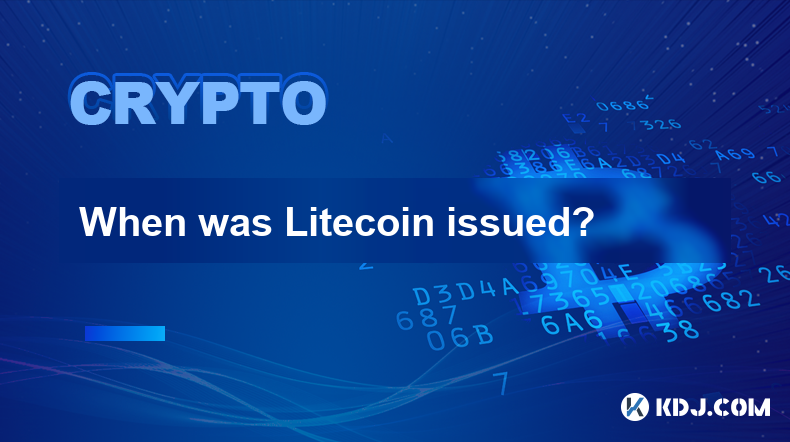
When was Litecoin issued?
Feb 04,2025 at 02:36am
When was Litecoin Issued?Key Points:Litecoin's inception and developmentLitecoin's launch date and market dynamicsLitecoin's technical specifications and key featuresLitecoin's Inception and DevelopmentLitecoin, conceived by former Google engineer Charlie Lee, emerged as a fork of Bitcoin in October 2011. Inspired by Bitcoin's revolutionary blockchain t...
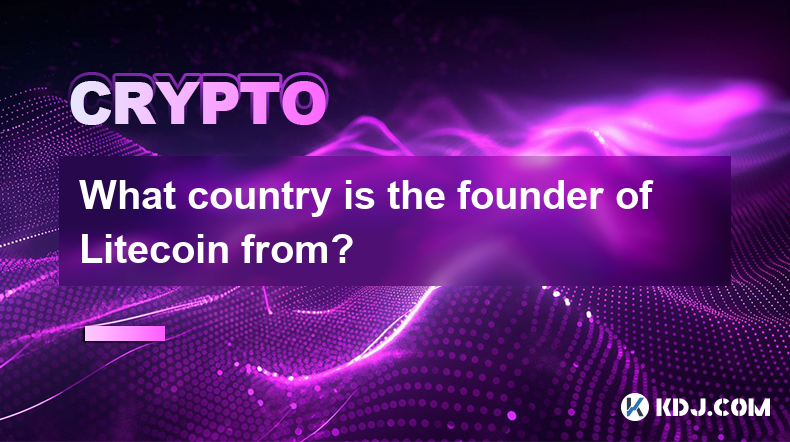
What country is the founder of Litecoin from?
Feb 04,2025 at 05:55am
Key Points:Litecoin's Founder and the Relationship with Charles LeeLitecoin's Technical Features and Similarities to BitcoinLitecoin's Role in the Cryptocurrency Ecosystem and Its PopularityComparative Analysis of Litecoin with Major CryptocurrenciesLitecoin's Community Involvement and PartnershipsArticle Content:Litecoin's Founder and the Relationship ...
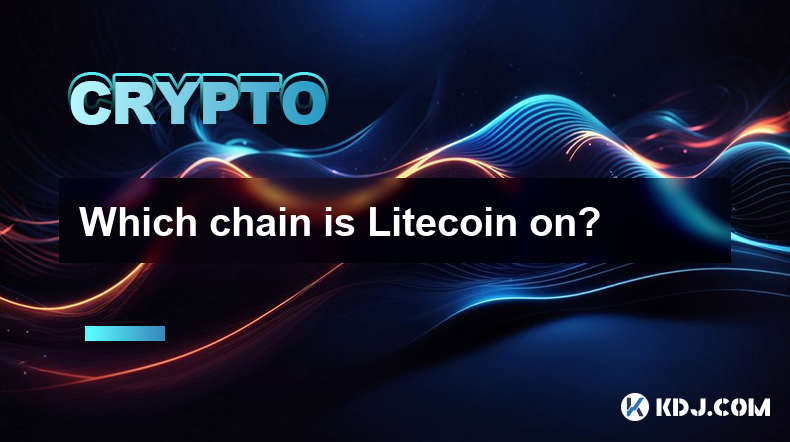
Which chain is Litecoin on?
Feb 04,2025 at 04:42am
Which Chain is Litecoin on?Key Points:Litecoin is built on its own blockchain, distinct from other cryptocurrencies.The Litecoin blockchain is a modified version of the Bitcoin blockchain.Litecoin's blockchain has faster block confirmation times than Bitcoin.Litecoin's blockchain has a larger maximum supply than Bitcoin.Detailed Guide:1. Litecoin's Uniq...
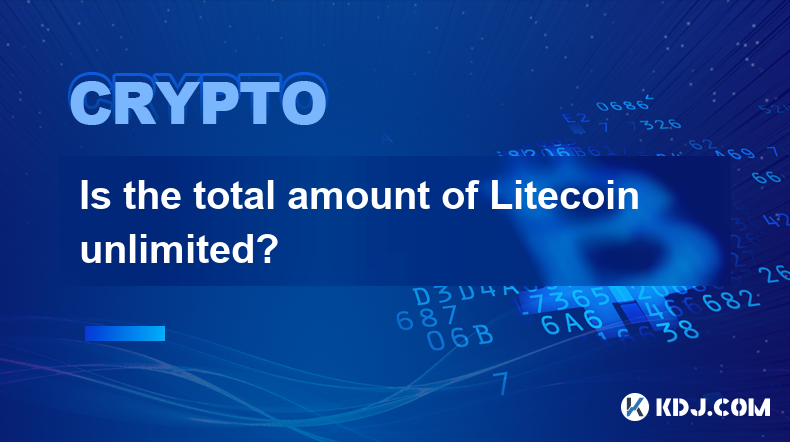
Is the total amount of Litecoin unlimited?
Feb 04,2025 at 05:36am
Key Points:Litecoin's total supply is capped at 84 million LTC.Litecoin's block reward halving occurs every 840,000 blocks, reducing the number of new LTC released into circulation over time.The supply issuance schedule ensures a predictable and finite supply of Litecoin.Is the Total Amount of Litecoin Unlimited?No, Litecoin's total supply is limited to...
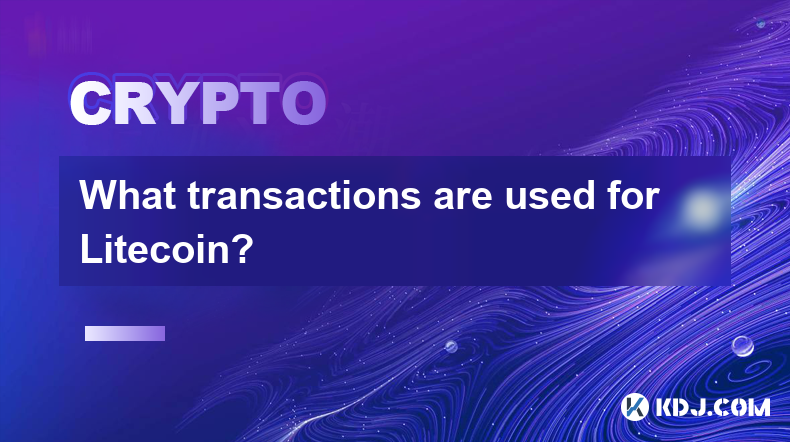
What transactions are used for Litecoin?
Feb 04,2025 at 06:30am
Key Points:Litecoin is used for various transactions, including:Everyday PurchasesInternational RemittancesDecentralized Finance (DeFi)Online GamblingPeer-to-Peer PaymentsSteps Involved in Litecoin Transactions:Creating a Litecoin Wallet: A wallet is necessary to store, send, and receive Litecoin. There are various types of wallets, including software w...

How to open a contract with Litecoin?
Feb 04,2025 at 01:36am
Key Points:Understanding Litecoin Futures ContractsSelecting a Reputable Cryptocurrency ExchangeFunding Your Trading AccountPlacing a Contract OrderMonitoring and Managing Your PositionHow to Open a Contract with Litecoin:1. Understanding Litecoin Futures Contracts:Litecoin futures contracts are financial instruments that allow traders to speculate on t...

When was Litecoin issued?
Feb 04,2025 at 02:36am
When was Litecoin Issued?Key Points:Litecoin's inception and developmentLitecoin's launch date and market dynamicsLitecoin's technical specifications and key featuresLitecoin's Inception and DevelopmentLitecoin, conceived by former Google engineer Charlie Lee, emerged as a fork of Bitcoin in October 2011. Inspired by Bitcoin's revolutionary blockchain t...

What country is the founder of Litecoin from?
Feb 04,2025 at 05:55am
Key Points:Litecoin's Founder and the Relationship with Charles LeeLitecoin's Technical Features and Similarities to BitcoinLitecoin's Role in the Cryptocurrency Ecosystem and Its PopularityComparative Analysis of Litecoin with Major CryptocurrenciesLitecoin's Community Involvement and PartnershipsArticle Content:Litecoin's Founder and the Relationship ...

Which chain is Litecoin on?
Feb 04,2025 at 04:42am
Which Chain is Litecoin on?Key Points:Litecoin is built on its own blockchain, distinct from other cryptocurrencies.The Litecoin blockchain is a modified version of the Bitcoin blockchain.Litecoin's blockchain has faster block confirmation times than Bitcoin.Litecoin's blockchain has a larger maximum supply than Bitcoin.Detailed Guide:1. Litecoin's Uniq...

Is the total amount of Litecoin unlimited?
Feb 04,2025 at 05:36am
Key Points:Litecoin's total supply is capped at 84 million LTC.Litecoin's block reward halving occurs every 840,000 blocks, reducing the number of new LTC released into circulation over time.The supply issuance schedule ensures a predictable and finite supply of Litecoin.Is the Total Amount of Litecoin Unlimited?No, Litecoin's total supply is limited to...

What transactions are used for Litecoin?
Feb 04,2025 at 06:30am
Key Points:Litecoin is used for various transactions, including:Everyday PurchasesInternational RemittancesDecentralized Finance (DeFi)Online GamblingPeer-to-Peer PaymentsSteps Involved in Litecoin Transactions:Creating a Litecoin Wallet: A wallet is necessary to store, send, and receive Litecoin. There are various types of wallets, including software w...

How to open a contract with Litecoin?
Feb 04,2025 at 01:36am
Key Points:Understanding Litecoin Futures ContractsSelecting a Reputable Cryptocurrency ExchangeFunding Your Trading AccountPlacing a Contract OrderMonitoring and Managing Your PositionHow to Open a Contract with Litecoin:1. Understanding Litecoin Futures Contracts:Litecoin futures contracts are financial instruments that allow traders to speculate on t...
See all articles

























































































